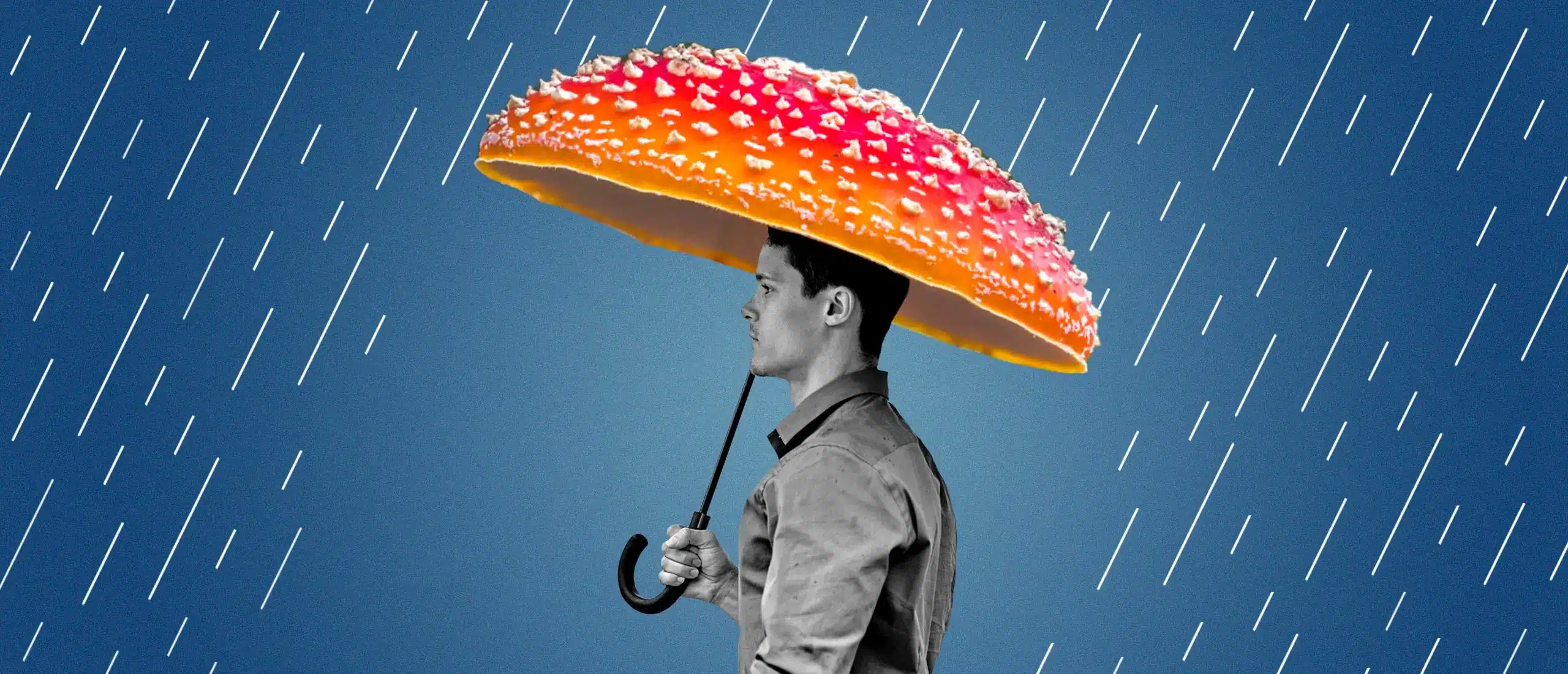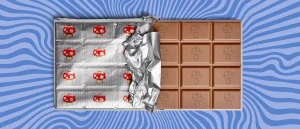New Research Backs Magic Mushrooms as a Natural Antidepressant
From NFL quarterback Aaron Rodgers and his MVP-making ayahuasca experience, to Netflix’s hit series How to Change Your Mind, to Colorado as the second U.S. state to legalize psilocybin, psychedelics have gone mainstream.
And the medical community is here for it. A new study published in The New England Journal of Medicine showed how 25 mg of psilocybin—magic mushrooms—significantly reduced symptoms of depression.
Magic Mushrooms and Depression
According to the study, researchers randomly assigned 233 adults into three treatment groups. Each group received a single psilocybin dose of 25 mg, 10 mg, or 1 mg—which acted as the control group—and underwent psychotherapy.
“Participants tripped out for six to eight hours under supervision after which the researchers assessed their progress over the following 12 weeks,” says our go-to social media doctor Karan Raj, M.D. The best results were found with the 25 mg dose of psilocybin when compared to the 1 mg control group.
One in three people were no longer diagnosed as depressed after three weeks, and one in five people saw significant improvement after 12 weeks, says Raj.
Growing Psilocybin Research on Depression
This latest study is part of a larger push by the researchers to use magic mushrooms for depression.
Researchers from Johns Hopkins published a 2020 study that found psilocybin was an effective treatment in people with major depression (1).
Another Johns Hopkins’ study published in the Journal of Psychopharmacology found psilocybin-assisted therapy had substantial antidepressant effects that lasted at least a year for some patients (2).
And more, a 2022 article published in Scientific Reports found microdosing psilocybin could improve depression and anxiety (3).
“We still need to figure out the mechanism of how psilocybin achieves this,” Raj says, “but it’s thought it has a direct action on the brain making it more flexible, providing a window of opportunity for therapy.”
References
1. Davis, A.; et al. (2020). Effects of Psilocybin-Assisted Therapy on Major Depressive Disorder: A Randomized Clinical Trial.
2. Gukasyan, N.; et al. (2022). Efficacy and safety of psilocybin-assisted treatment for major depressive disorder: Prospective 12-month follow-up.
3. Rootman, J.; et al. (2022). Psilocybin microdosers demonstrate greater observed improvements in mood and mental health at one month relative to non-microdosing controls.










